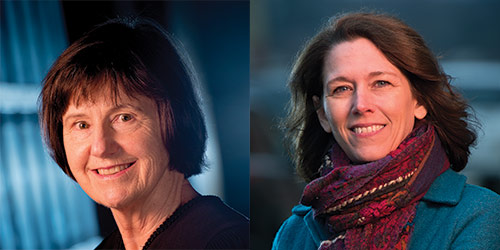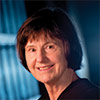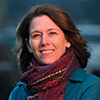Two Madison lawyers duel over spot on Dane County bench
By: Erika Strebel, [email protected]//March 23, 2018//
Two Madison lawyers duel over spot on Dane County bench
By: Erika Strebel, [email protected]//March 23, 2018//

Besides having to choose between the two candidates running for the Wisconsin Supreme Court, voters in Dane County will be weighing in on a rare contest for a spot on their county’s circuit-court bench.
Of the 55 elections for state judge positions scheduled for April 3, only 11 are contested. In Dane County specifically, there are three open bench spots. But only the Branch 1 seat is contested.
Unlike races for the state Supreme Court, circuit-court contests typically do not attract large amounts of money from outside special-interest groups. Experts have noted that circuit-court races are also typically less about candidates’ political platforms and more about their qualifications.
The seat on Branch 1 originally was held by Judge John Markson, who retired last summer after a decade on the court. Gov. Scott Walker appointed Judge Timothy Samuelson, who was then an assistant attorney general, to serve out the remainder of Markson’s term.
When the seat came up for election, Samuelson decided not to run, leaving it up for grabs.
The two candidates vying for the seat have both practiced law in the Madison area for years.
Susan Crawford is a partner and civil litigator at Pines Bach. She specializes in constitutional rights and public-interest law. Her clients have included Planned Parenthood and the League of Women Voters. She also recently helped write amicus briefs submitted in Gill v. Whitford, a U.S. Supreme Court case involving Wisconsin’s gerrymandered legislative districts.
Marilyn Townsend is a labor and employment attorney. She has also been a municipal court judge for the village of Shorewood Hills since 2012 and is a volunteer lawyer in the Unemployment Compensation Appeals Clinic and the Veterans Law Clinic.
Both candidates have practiced law at a high level.
Townsend, who earned her law degree from Washington, D.C.,-based Potomac School of Law in 1979, argued before the Wisconsin Supreme Court in 2016 on the behalf of a former Walgreens employee who had been denied jobless benefits. The justices sided with Townsend’s client last year, finding that the woman was improperly denied benefits.
Before she started her firm, Marilyn Townsend Law Office, Townsend had practiced law in Washington D.C, where her work included time spent as a staff attorney for a union.
Townsend’s supporters include two former governors, former U.S. Senator Russ Feingold, labor groups, municipal judges, former justices, appeals-court judges, circuit-court judges and dozens of lawyers, many of whom she says were on the other side of her cases.
Crawford, for her part, had served as chief legal counsel to Gov. Jim Doyle before joining Pines Bach. She also spent time at the Departments of Natural Resources, Corrections and Employment Relations.
After earning her law degree from the University of Iowa College of law in 1994, Crawford started her legal career working for the Iowa Attorney General and later worked for the Wisconsin Department of Justice as an assistant attorney general, specializing in criminal-appellate work.
Crawford is endorsed by Doyle, dozens of state judges and attorneys and former judges.
Each candidate recently took some time to talk to the Wisconsin Law Journal.
Townsend says judicial experience sets her apart

Wisconsin law Journal: Why are you running for Branch 1?
Marilyn Townsend: I’m running for Branch 1 circuit court judge because I care deeply about fairness and equal justice in our courts and I want to put my unique combination of judicial and legal experience and my values to work to help reduce racial disparity, increase access to justice and help improve our courts so justice for all is a reality as well as a promise.
I would note, I am the only candidate for judge in this race who is a judge. I’ve overseen and decided more than 3,000 cases. And in my courtroom, I make sure everyone gets a fair shake.
WLJ: Describe your judicial philosophy.
Townsend: My judicial philosophy is very straightforward. Judges are impartial arbiters of the law who listen carefully, treat everyone with respect, apply the law fairly. That is what I do as a municipal-court judge, and what I will do as a circuit-court judge.
WLJ: What single experience has helped you build that philosophy?
Townsend: I believe my early life. I have an appreciation for the challenges people face. I was raised on a farm in northern Wisconsin. My mother was a first generation American. My parents were raised during the Great Depression. And neither of them graduated from high school, but they taught all eight of us kids the importance of hard work, education, perseverance, and they also emphasized the importance of giving to the community, which, throughout my career, I have tried to do.
WLJ: If elected, how would you approach legal issues that you are not familiar with?
Townsend: Well, the way I approach legal issues now as a municipal court judge. I listen to the parties, hear their arguments, review the statute, look at the cases and then make a fair and impartial decision.
WLJ: What do you think about the politics on the Wisconsin Supreme Court?
Townsend: Well, let me say that I had occasion to argue a case in the Wisconsin Supreme Court in November 2016 on behalf of my client. We were seeking to restore unemployment benefits. The seven members of the Supreme Court ruled in May of 2017 unanimously in my client’s favor.
So my experience as a lawyer was seven justices who applied the law to the facts of the case and ended up with a decision that I thought was correct.
I would add that partisan politics don’t belong in our courts. In Wisconsin, as elsewhere, the perception that political agendas influence our courts is fueled, in part, by large campaign contributions in judicial races.
WLJ: What do you think about the Wisconsin Supreme Court’s recent decision not to adopt a proposal made by 54 retired judges to make changes to the state’s judicial recusal rules?
Townsend: I am very troubled by that, and I would state that I am the only candidate in this race for judge who is voluntarily limiting the amount of contributions this campaign will accept. I believe voters have a right to know that judges are fair and impartial and that justice is not for sale. There is too much money in judicial campaigns and, by voluntarily limiting the amount of contributions in this campaign, I am stepping up to make a difference.
WLJ: What do you think about the court’s decision to close its deliberations on rules changes and administrative conferences to the public?
Townsend: I’m a firm believer in open government. Wisconsin has a long and proud tradition that government should occur in the public, and I am very troubled by any closed session.
One of the Supreme Court justices whom I admire, Justice Brandeis, often said that “Sunshine is the best disinfectant.” And I believe open meetings are very important.
WLJ: Why should voters choose you?
Townsend: Well, I am the only candidate for judge that is a judge. Judicial experience is very important here. My opponent is a fine attorney, but she has never been a judge. And as a judge and as an attorney, I have more and more relevant experience for this job.
As a municipal-court judge, I have overseen and decided more than 3,000 cases. As a judge, I’ve decided issues of law, I’ve managed a court room, I’ve presided over trials and made tough decisions. There is no substitute for that kind of experience.
Crawford: County needs judge with criminal-law experience

Wisconsin Law Journal: Why are you running for Branch 1?
Susan Crawford: I’m running because I’m concerned about the disparities in Dane County, both racial and economic. I think that I have the right background and experience to tackle those problems and ensure that our justice is delivering equal justice to all.
Branch 1 is a designated criminal court, currently. That means all cases assigned to it are criminal cases. I do have a pretty extensive background in criminal law. I also have experience from different vantage points in the criminal-justice system that I believe round out my view of the justice system.
WLJ: Describe your judicial philosophy.
Crawford: There are two aspects I would highlight. I think it’s important for courts to carry out their roles under the Constitution, and part of that is to interpret the laws and interpret the Constitution and to make sure that the other branches of government are not exceeding or abusing their power granted to them under the Constitution. That’s the power of judicial review.
Another aspect of my judicial philosophy – and this is coming from the criminal-justice system – is to ensure equal justice under the law. I think that is the predominant value that courts should apply in the criminal-justice system.
WLJ: What single experience has helped you build that philosophy?
Crawford: Challenging the constitutionality of the voter ID law in Wisconsin. I represented the League of Women Voters with a team of lawyers in the Dane County Circuit Court. We were successful in getting an injunction against that law that put a halt to it. The state appealed, and eventually the Wisconsin Supreme Court upheld the law in a split decision. However, the court also determined that the Department of Transportation had to make some changes before the law could be implemented in Wisconsin.
WLJ: If elected to the bench, how would you approach legal issues that you are not familiar with?
Crawford: I would approach them as I have over the years of my experience as a lawyer. I spent my first nine years of my career exclusively practicing criminal law. I moved to state administrative positions. I was working in things like environmental protection, correctional policy — many other areas where I had to very quickly come up to speed in a substantive area of law.
I spent my last seven years of practice as a civil litigator and, although I practice primarily in public-interest law, each case is different. One of the things I have enjoyed about being a civil litigator is that each case presents an opportunity to learn a completely different area of law, and I have always been a kind of law nerd. I enjoy reading legal decisions.
I think just by personality and experience, I have shown my willingness and ability to learn new areas, and that’s something that excites me about becoming a judge.
WLJ: What do you think about the politics on the Wisconsin Supreme Court?
Crawford: Well, of course there should not be politics on the Wisconsin Supreme Court. I have seen instances where I believe the court is making decisions based on the identities of the parties coming before it or based on some type of political considerations that are not legal considerations. It’s very unfortunate when that happens and that’s not what courts should do.
WLJ: What do you think about the Wisconsin Supreme Court’s recent decision not to adopt a proposal made by 54 retired judges to make changes to the state’s judicial recusal rules?
Crawford: I was strongly in support of that proposal. It set out an easy-to-apply rule that would give the parties appearing before the court assurance of the fairness of the judge and, I believe, would enhance the public perception that our courts are fair and are not influenced by the huge amounts that come into play in court elections, particularly in state supreme court elections.
And as a judge, I would apply a similar standard in recusing myself from cases if I had received a substantial campaign contribution from one of the parties.
WLJ: What do you think about the court’s decision to close its deliberations on rules changes and administrative conferences to the public?
Crawford: The court gets to determine its own rules for openness because of separation of powers. The Legislature doesn’t get to tell the court how to conduct its meetings. I believe that the court should at least hold itself to as high as standard as the Legislature has set for other governmental bodies.
WLJ: Why should voters choose you?
Crawford: I am the only candidate in the race who has significant experience in Dane County courtrooms, and I am the only candidate in the race who has a background in criminal law. Given that this is a criminal bench, that is a very important consideration.
My opponent often points to her experience as the municipal-court judge for the village of Shorewood Hills. I believe that is an apples-to-oranges comparison to the Dane County Circuit Court.
The municipal courts follow different procedures. They don’t hold jury trials, for example, and the experience of presiding over a traffic court in a very small municipality for a few hours a month is just not comparable to a general jurisdiction, full-time circuit court.
Legal News
- Former law enforcement praise state’s response brief in Steven Avery case
- Eric Toney announces re-election bid for Fond du Lac County District Attorney
- Former Wisconsin Democratic Rep. Peter Barca announces new bid for Congress
- Republicans file lawsuit challenging Evers’s partial vetoes to literacy bill
- More human remains believed those of missing woman wash up on Milwaukee Co. beach
- Vice President Harris returning to Wisconsin for third visit this year
- Wisconsin joins Feds, dozens of states to hold airlines accountable for bad behavior
- Trump ahead of Biden in new Marquette poll
- Bankruptcy court approves Milwaukee Marriott Downtown ‘business as usual’ motion
- New Crime Gun Intelligence Center to launch in Chicago
- Arrest warrant proposed for Minocqua Brewing owner who filed Lawsuit against Town of Minocqua
- Wisconsin Supreme Court justices question how much power Legislature should have
WLJ People
- Power 30 Personal Injury Attorneys – Russell Nicolet
- Power 30 Personal Injury Attorneys – Benjamin Nicolet
- Power 30 Personal Injury Attorneys – Dustin T. Woehl
- Power 30 Personal Injury Attorneys – Katherine Metzger
- Power 30 Personal Injury Attorneys – Joseph Ryan
- Power 30 Personal Injury Attorneys – James M. Ryan
- Power 30 Personal Injury Attorneys – Dana Wachs
- Power 30 Personal Injury Attorneys – Mark L. Thomsen
- Power 30 Personal Injury Attorneys – Matthew Lein
- Power 30 Personal Injury Attorneys – Jeffrey A. Pitman
- Power 30 Personal Injury Attorneys – William Pemberton
- Power 30 Personal Injury Attorneys – Howard S. Sicula











